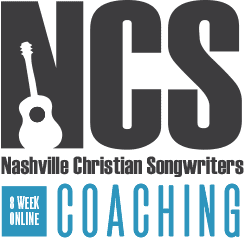What a Beautiful Name It Is
Hillsongs’ “What a Beautiful Name” by Brooke Ligertwood and Ben Fielding took the worship world by storm a couple of years back and even won a Grammy. We still sing it a lot at our church and I bet you do, too. It’s hanging around in the top songs on CCLI’s Top 100 even now and that means it’s being used by a lot of believers today, even four years later.
It’s just one of those amazing worship songs that seems to have burst onto the church unannounced like a hailstorm on a sizzling summer day in San Antonio.
At this writing, “What a Beautiful Name” has over 370 million views on one Youtube video alone, not counting all of the other shares and likes and re-postings of this song worldwide.
I teach a lot about successful Christian songwriting. This is a glimmering example, of course, because it’s hitting home with millions of people all over the world in a very short period of time from its release in 2016.
Great worship songwriting gives the church its language of praise.
So what can we learn from a song like this?
Hit songs don’t happen by accident. What some call “formulas” I call “principles.” Here are three important ones I see in “What a Beautiful Name It Is” that could help you write more engaging and powerful worship songs, too.
Always Start with an Amazing Phrase/ Hook
First, this is an exquisite “hook,” a phrase that every Jesus-worshiper on the planet is happy to utter. “What a beautiful name it is” is one of those composite phrases that fuses the best elements of classic titles like “There’s Just Something About That Name” (Wm. J. and Gloria Gaither), “How Beautiful” (Twila Paris), or “Beautiful One” (Tim Hughes), “Your Name” (Glenn Packiam/Paul Baloche), and with what may be a slight nod to the classic hymn “What a Friend We Have in Jesus” (Scriven/Converse).
I’m not saying the writers did this on purpose, but, however it happened, their unique combination reminiscent of these classic phrases put one of the freshest and most endearing new worship phrases into the mouths of worshipers worldwide. They powerfully captured our heart’s desire to express our own love and worship to Jesus.
Singability means accessability.
And that’s what great worship songwriting does–it gives the church its love language and releases us with expressions we would’ve never thought of on our own.
Worship songwriters help give the church its verbiage, the actual words and melodies, with which to express their deepest devotion to God.
So, here’s a hint for all worship songwriters: Research great hymns and every song title you can find to look for fresh combinations of phrases. Don’t be afraid to mix and match to create new combinations that refresh the themes of the cross, the love of God, the name of Jesus, grace, redemption, and of what it means to worship Him.
Keep It Simple
Second, Ligertwood and Fielding kept it simple. Simplicity is one of the most difficult challenges in songwriting. I think of a “hit” song as a song that connects with the greatest number of listeners and end-users, regardless of the genre. In worship music, that means people want to sing this song over and over again in their churches.
“In Christ Alone” (Townend/Getty) is a hit. “How Great is Our God” (Tomlin, Cash, Reeves) is a hit. “10,000 Reasons” (Redman/Myrin) is a hit, too, but not only because they were promoted by record companies or were played on the radio.
These songs connect with the greatest number of worshipers because the writers kept the songs simple in ways that help you want to sing them. The more words and complicated phrases and difficult rhythms you use, the less likely it is that your song will be adopted and used by a large number of people.
Almost every time a song connects, the title phrase is straight-forward and can stand on its own. You don’t have to guess what it’s about or dig to find the meaning. A title like “How Deep the Father’s Love for Us” by Stuart Townend is another great example.
Spend a little time reflecting on the simplicity of the words and melodies in these songs and you’ll begin to recognize when you’re over-writing, or needlessly complicating your own songs.
Singability Means Accessability
Third, the sheer singability of this song makes it immediately accessible to everyone. Notice the writers didn’t make the vocal range of the song out of reach for the average singer, keeping it in a six-note range throughout, which is quite comfortable for most people.
Along with a sensible range is a singable melody coupled beautifully with the lyric. In songwriting terms this is called prosody and has to do with the marriage of the lyrics and melody. If it’s a great marriage, it’s more likely to be a great song.
Sometimes a song can have great lyrics and a weak melody or vice versa. This sabotages the song. You want a powerful combination of lyrics with melody, or great prosody, and Ben and Brooke certainly captured it in this song.
Breaking it down to see how they’ve done it is a great way to increase your own song power and acquiring the skills to write better songs helps more people respond by liking, loving, sharing, and even singing your words and melodies for years to come.
And, please, if you find a phrase as perfect as “What a Beautiful Name It Is,” keep it simple and singable. Don’t overthink it or complicate it just to show how crafty you can be. Keep the range relatively easy for the average guy and make sure the melody and lyrics have a blissful marriage to be on your way to blessing a whole lot of people.
I’d be happy to have just one-million views on one of my songs. I’d probably go into a coma if I had 400+ million and climbing. Brooke Ligertwood and Ben Fielding deserve the accolades. They’ve given us a new classic that is deserving of great rewards in heaven and on earth.
Now it’s your turn.



This Post Has One Comment
I love it that’s so true